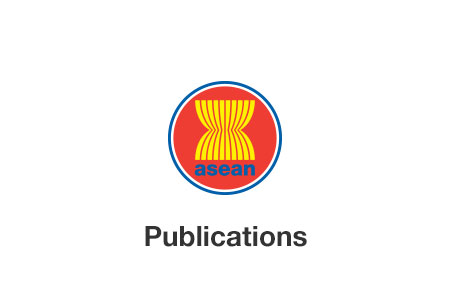
Resources
ASEAN Guidelines for a Non-Violent Approach to Nurture, Care, and Development of Children in All Settings
The Convention on the Rights of the Child specifies that it is the obligation of State parties to address and eliminate the widespread prevalence and incidence of violence against children (VAC). The UN Special Representative to the Secretary-General on Violence against Children, Paulo Sergio Pinheiro, outlined what has to be done to confront the major […]
Ending violence against children in ASEAN member States Baseline study of priority areas under the ASEAN Regional Plan of Action on the Elimination of Violence against Children A snapshot as of 2016
Violence against children is prevalent throughout the world, including in the East Asia and Pacific region. In recognition of the need for States to work together at a regional level, in 2013 the Association of Southeast Asian Nations (ASEAN) Heads of State signed a Declaration on the Elimination of Violence Against Children in ASEAN. In […]
Ending violence against children in ASEAN Member States Baseline study of priority areas under the ASEAN Regional Plan of Action on the Elimination of Violence against Children
In recognition of the need for States to work together at the regional level, the 10 ASEAN Heads of States signed a Declaration on the Elimination of Violence Against Children in 2013 and adopted the ASEAN Regional Plan of Action on the Elimination of Violence Against Children in 2016. The objectives of the Regional Plan […]
CHILDREN IN ASEAN 30 Years of the Convention on the Rights of the Child
Thirty years ago, the world united to secure the rights of all children through the United Nations Convention on the Rights of the Child (CRC). The Convention, which was adopted by the United Nations General Assembly on the 20 November 1989, remains, to this day, the most widely and swiftly ratified international human rights agreement […]
ASEAN Regional Guidelines on Violence against Women and Girls Data Collection and Use
In 2015, the Association of Southeast Asian Nations Regional Plan of Action on the Elimination of Violence against Women (ASEAN RPA on VAW) was adopted and recognized that violence against women and girls (VAWG) is an “obstacle to the social and economic development of communities and states as well as the achievement of internationally agreed-upon […]
THE ASEAN GUIDELINES FOR A NON-VIOLENT APPROACH TO NURTURE, CARE AND DEVELOPMENT OF CHILDREN IN ALL SETTINGS
The Convention on the Rights of the Child specifies that it is the obligation of State parties to address and eliminate the widespread prevalence and incidence of violence against children (VAC). The UN Special Representative to the Secretary-General on Violence against Children, Paulo Sergio Pinheiro, outlined what has to be done to confront the major […]
ASEAN EARLY CHILDHOOD CARE, DEVELOPMENT AND EDUCATION QUALITY STANDARDS
All ASEAN Member States (AMS) have ratified the Convention on the Rights of the Child (CRC) which has 54 articles covering four major categories of child rights, namely, the right to life, the right to protection, the right to development and the right to participation. Education is one of the major vehicles through which children […]
ACTION AGENDA ON MAINSTREAMING WOMEN’S ECONOMIC EMPOWERMENT (WEE) IN ASEAN
The Action Agenda aims to mainstream Women’s Economic Empowerment through innovation, trade and inclusive business, and human capital development by encouraging each ASEAN Member State to support the following actions Download Pdf
Regional Plan of Action on Implementing the ASEAN Declaration on the Rights of Children in the Context of Migration
Worldwide millions of children are living in migration or displacement, placing them in situations of risk. International and domestic migration and displacement are not new phenomena. They affect every country in the ASEAN region. According to UNICEF, based on international migrant stock, more international migrants move beyond the ASEAN region than within ASEAN countries. Download […]
ASEAN Enabling Masterplan 2025
The promotion and protection of human rights and fundamental freedoms, strengthening democracy, enhancing good governance and adherence to the rule of law are among ASEAN’s key principles and purposes1. Reaffirming these principles, the ASEAN Leaders adopted the ASEAN Human Rights Declaration2 (AHRD) in 2012. Along with the Phnom Penh Statement on the Adoption of the […]

